
2019-01-26_The_Economist
.pdf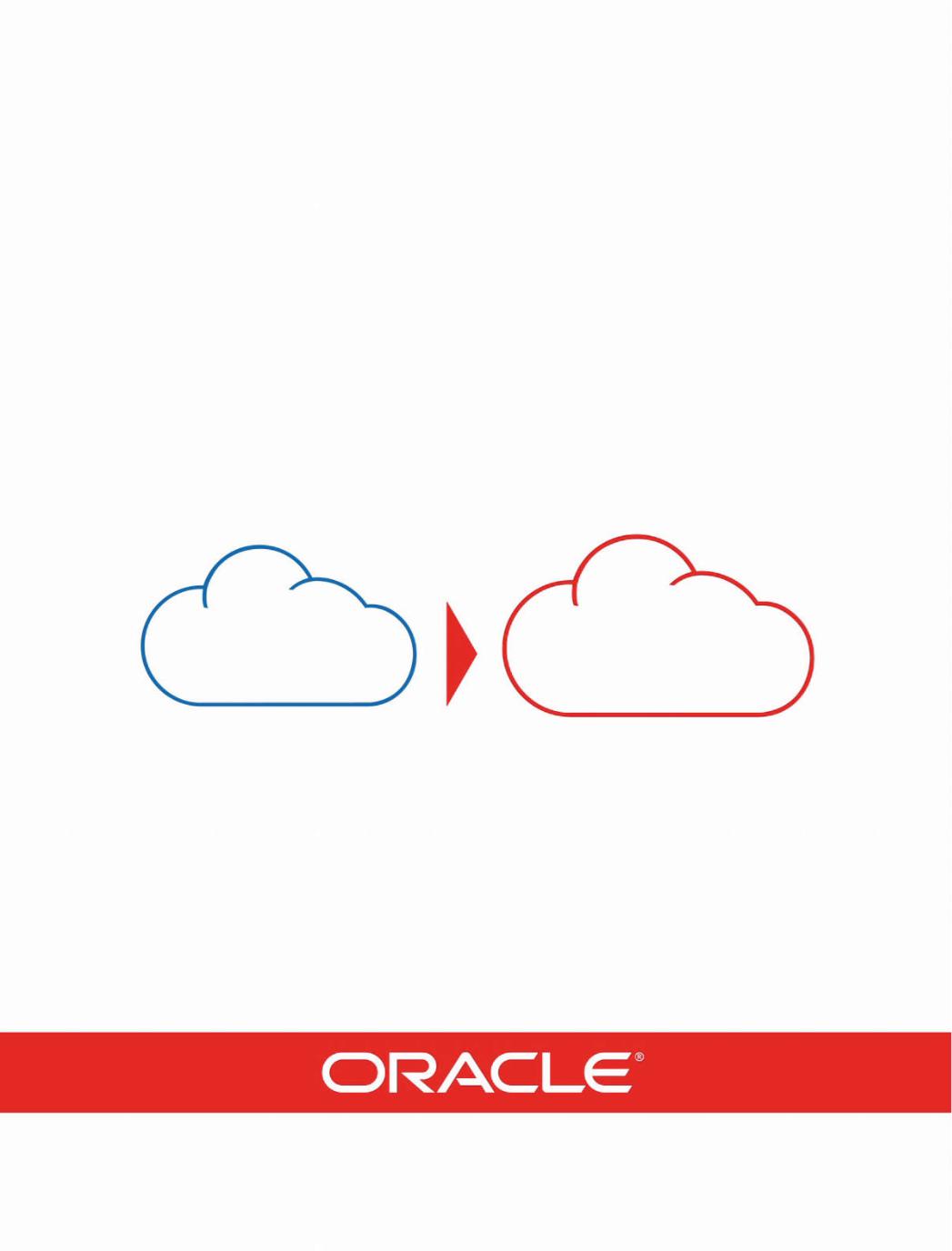
vk.com/id446425943
Cut Your
Amazon
Bill in Half
Any |
Oracle |
Amazon |
Autonomous |
Database |
Database |
Easy to Move—Guaranteed Savings
There’s the cloud… and there’s the
Oracle Autonomous Cloud.
#thinkautonomous
oracle.com/thinkautonomous
Guarantee applies to same data warehouse or transaction processing workload run on Oracle Autonomous Database Cloud and AWS. Pricing based on standard published pricing for Oracle bring your own license and AWS as of 3/1/18. Workload comparison to be based on actual required number of OCPU/VCPUs, storage amount, and time required to complete workload with minimum workload of one hour.
Any credits due will be applied to Universal Credit cloud account. Offer valid through 5/31/19. Copyright © 2018, Oracle and/or its affiliates. All rights reserved. Oracle and Java are registered trademarks of Oracle and/or its affiliates. Other names may be trademarks of their respective owners.
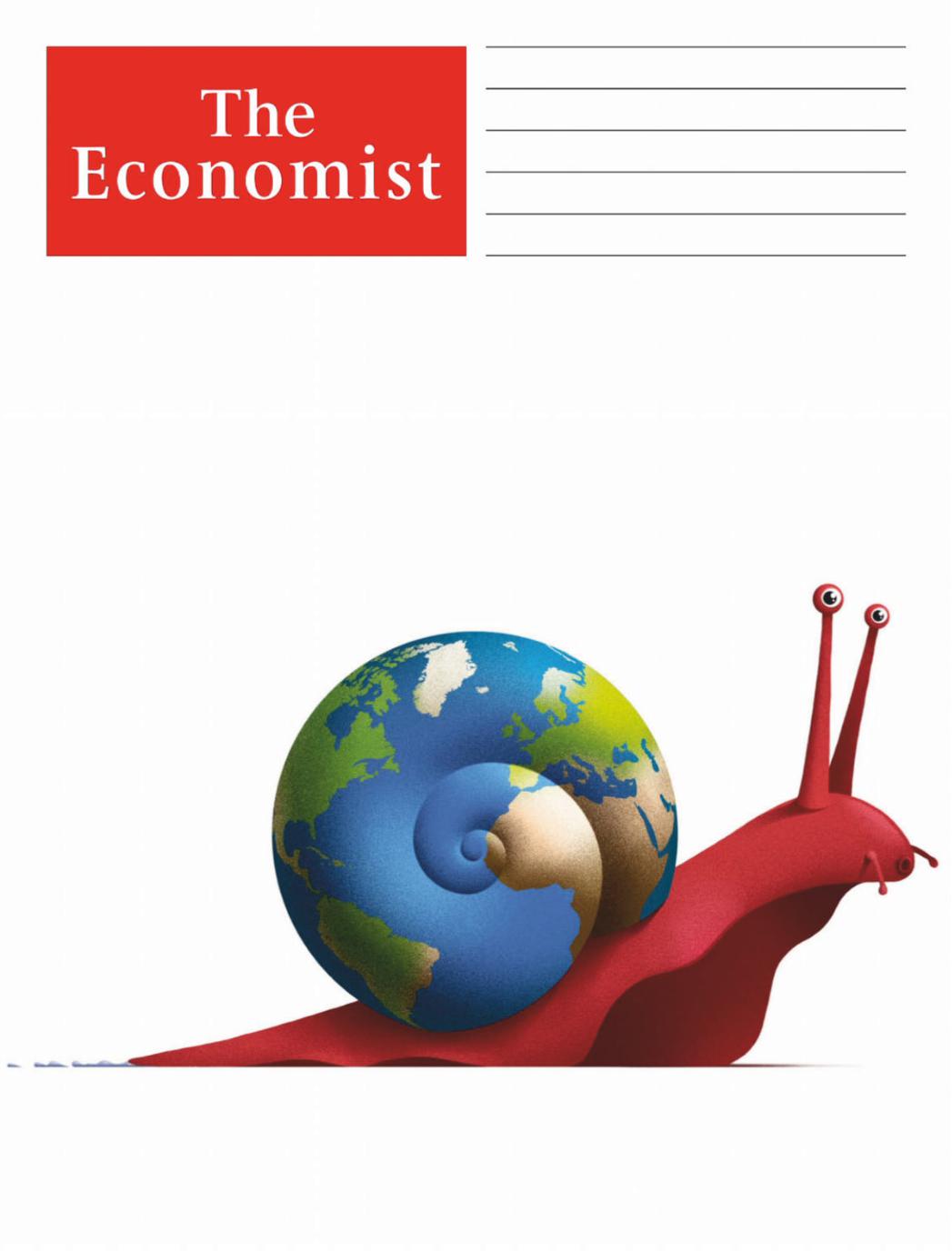
vk.com/id446425943
Venezuela erupts
How to defend Taiwan
India’s internet tycoon bets big
Drones: hovering with intent
JANUARY 26TH–FEBRUARY 1ST 2019
Slowbalisation
The future of global commerce
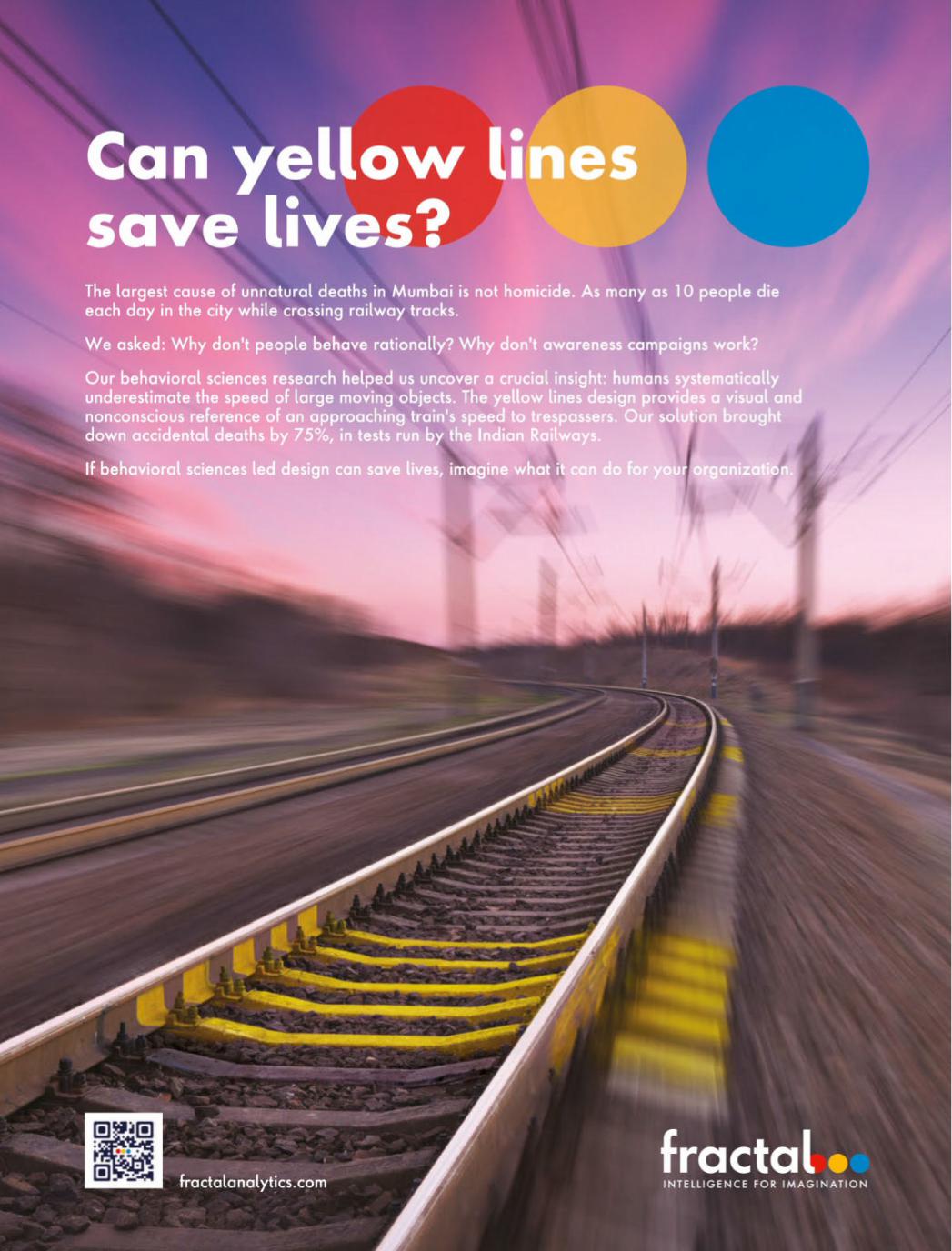
vk.com/id446425943
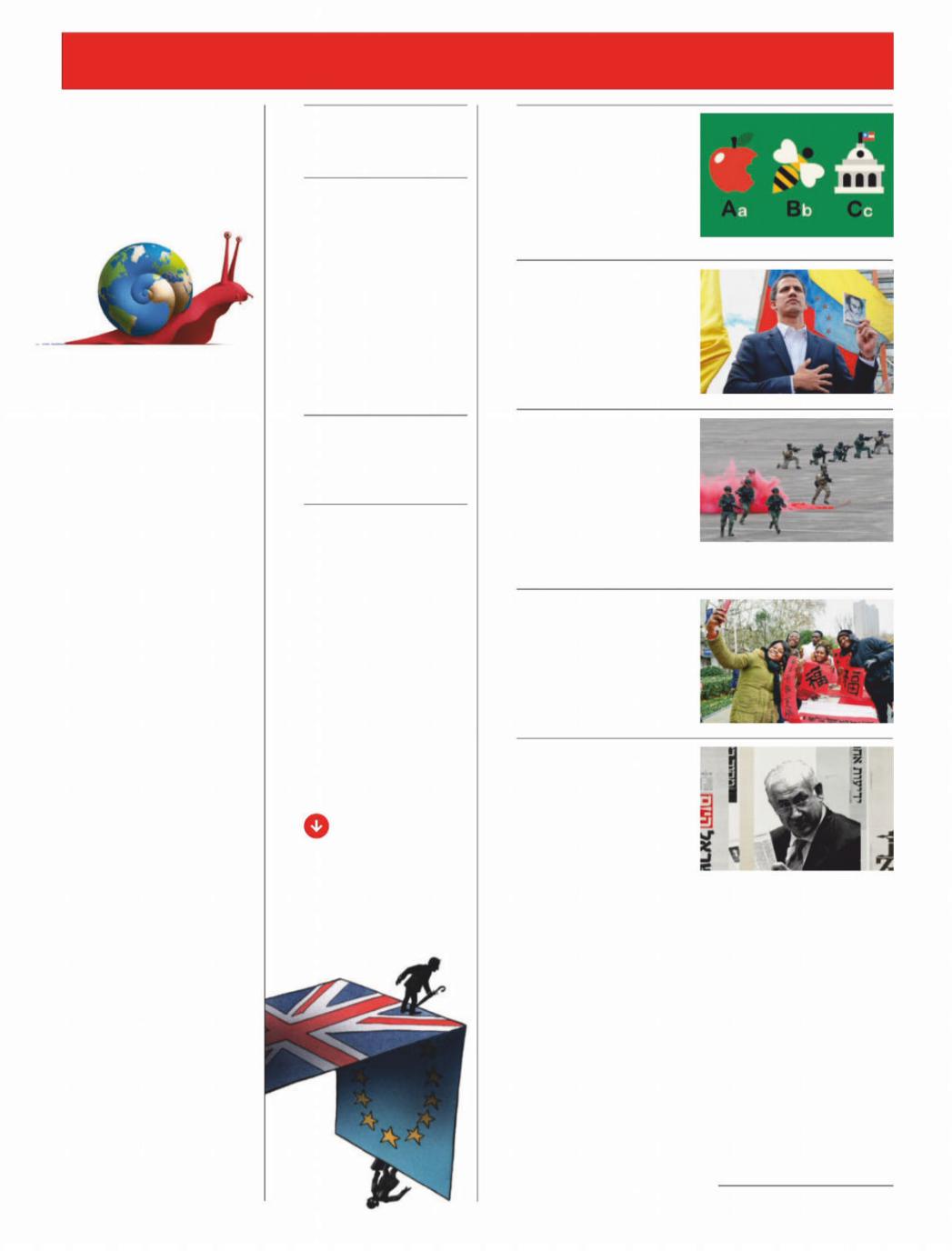
vk.com/id446425943
Contents
On the cover
Slowbalisation, a new pattern of world commerce is
becoming clearer—as are its costs: leader, page 9. Why
globalisation faltered, page 19. What to make of China’s
weakest growth in 28 years, page 60. The euro area is back
on the brink of recession: Free exchange, page 66
•Venezuela erupts How to hasten the demise of an incompetent dictatorship: leader, page 10. Juan Guaidó has popular support and diplomatic recognition. But Nicolás Maduro still controls the army, page 29
•How to defend Taiwan China’s growing might is forcing the island to overhaul its military strategy, page 31
•India’s internet tycoon bets big Thanks mostly to the ambitions of Mukesh Ambani, Indians are getting onto the internet faster than ever, page 53
•Drones: hovering with intent
Regulators need to encourage drones, but also to protect people from them: leader, page 10. The technology for dealing with rogue drones is getting better, page 69
The world this week
6A round-up of political and business news
Leaders
9Global business
Slowbalisation
10Venezuela erupts
Removing Maduro
10Drones
Saviour or menace?
11Democratic Republic of Congo
The great vote robbery
12Index funds
Beating the pros
Letters
14On housing, Europe, Britain, Pakistan, the military, Chairman Mao
Briefing
19Slowbalisation
The global list
Charlemagne What Britain and its neighbours misunderstand about each other, page 47
The Economist January 26th 2019 3
United States
23Young Americans
24Alexandria Ocasio-Cortez
26Riding bulls
27Foxconn in Wisconsin
28Lexington Who is winning the shutdown?
The Americas
29Two presidents for Venezuela
30Guns in Brazil
Asia
31Defending Taiwan
32Banyan Asian democracy
33South Korea’s judiciary
34Education in India
34Japanese dress codes
35Politics in Afghanistan
35Extremism in Indonesia
China
36Belt-and-road students
37Politics and the law
38Chaguan Greenery and universal values
Middle East & Africa
39Netanyahu and the press
40Egypt’s new capital
41Repression in Zimbabwe
41A murder in Ghana
42Congo’s bogus president
1 Contents continues overleaf
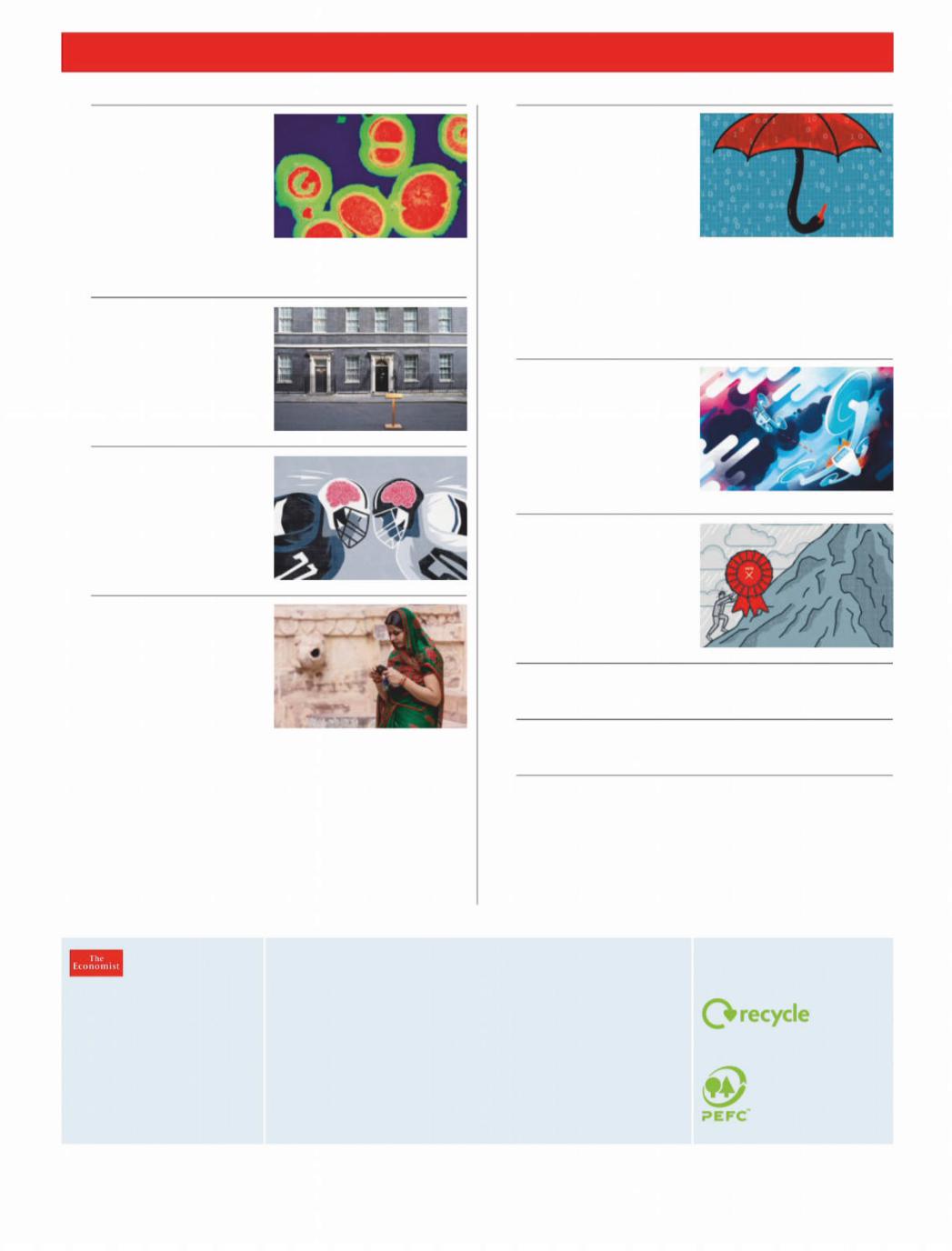
vk.com/id446425943
4Contents
Europe
43Hospital superbugs
44Germany’s economy
45Tardy Teutonic trains
45Trying war crimes
46Money-laundering in Malta and Cyprus
47Charlemagne A gulf of misunderstanding
Britain
48The absent agenda
49Parliamentary plotting
50Bagehot Michael Gove, moderate maverick
International
51Protecting athletes from brain injury
Business
53India’s Je Bezos?
54The Siemens-Alstom deal
55Bartleby Woke capitalism
56France v Google
56Huawei’s woes
57Bike-sharing in China
58Schumpeter Lessons from IKEA
Volume 430 Number 9127
Published since September 1843
to take part in “a severe contest between intelligence, which presses forward,
and an unworthy, timid ignorance obstructing our progress.”
Editorial offices in London and also:
Amsterdam, Beijing , Berlin, Brussels, Cairo,
Chicago, Johannesburg , Madrid, Mexico City,
Moscow, Mumbai, New Delhi, New York, Paris,
San Francisco, São Paulo, Seoul, Shanghai,
Singapore, Tokyo, Washington DC
The Economist January 26th 2019
Finance & economics
59Risky cyber-insurance
60China’s slowing economy
61Monetary policy in Africa
61Replacing LIBOR
62Cleaning up Italian banks
63Buttonwood Wizened of Oz
64Fixing the audit market
64The Fed’s balance-sheet
66Free exchange
#Eurogloom
Science & technology
69Defending against drones
70Migrating sea cucumbers
72Fossils and Earth’s orbit
74Placebo buttons
74A camera that sees round corners
Books & arts
75Max Weber’s wisdom
76Down with Davos Man
77Native American history
78A novel of celebrity
78 Snapshots of New York
Economic & financial indicators
80Statistics on 42 economies
Graphic detail
81The cost of studying the arts at Oxbridge
Obituary
82Marcel Azzola, champion of the accordion
Subscription service
For our full range of subscription offers, including digital only or print and digital combined, visit:
Economist.com/offers
You can also subscribe by mail, telephone or email:
North America
The Economist Subscription Center,
P.O. Box 46978, St. Louis, MO 63146-6978 Telephone: +1 800 456 6086
Email: customerhelp@economist.com
Latin America & Mexico
The Economist Subscription Center,
P.O. Box 46979, St. Louis, MO 63146-6979 Telephone: +1 636 449 5702
Email: customerhelp@economist.com
One-year print-only subscription (51 issues):
United States.................................... |
US $158.25 (plus tax) |
Canada................................................ |
CA $158.25 (plus tax) |
Latin America....................................... |
US $289 (plus tax) |
Please
PEFC certified
This copy of The Economist is printed on paper sourced from sustainably managed forests certified to PEFC
PEFC/29-31-58 www.pefc.org
© 2019 The Economist Newspaper Limited. All rights reserved. Neither this publication nor any part of it may be reproduced, stored in a retrieval system, or transmitted in any form or by any means, electronic, mechanical, photocopying, recording or otherwise, without the prior permission of The Economist Newspaper Limited. The Economist (ISSN 0013-0613) is published every week, except for a year-end double issue, by The Economist Newspaper Limited, 750 3rd Avenue, 5th Floor, New York, N Y 10017. The Economist is a registered trademark of The Economist Newspaper Limited. Periodicals postage paid at New York, NY and additional mailing offices. Postmaster: Send address changes to The Economist, P.O. Box 46978, St. Louis , MO. 63146-6978, USA. Canada Post publications mail (Canadian distribution) sales agreement no. 40012331. Return undeliverable Canadian addresses to The Economist, PO Box 7258 STN A, Toronto, ON M5W 1X9. GST R123236267. Printed by Quad/Graphics, Saratoga Springs, NY 12866

vk.com/id446425943
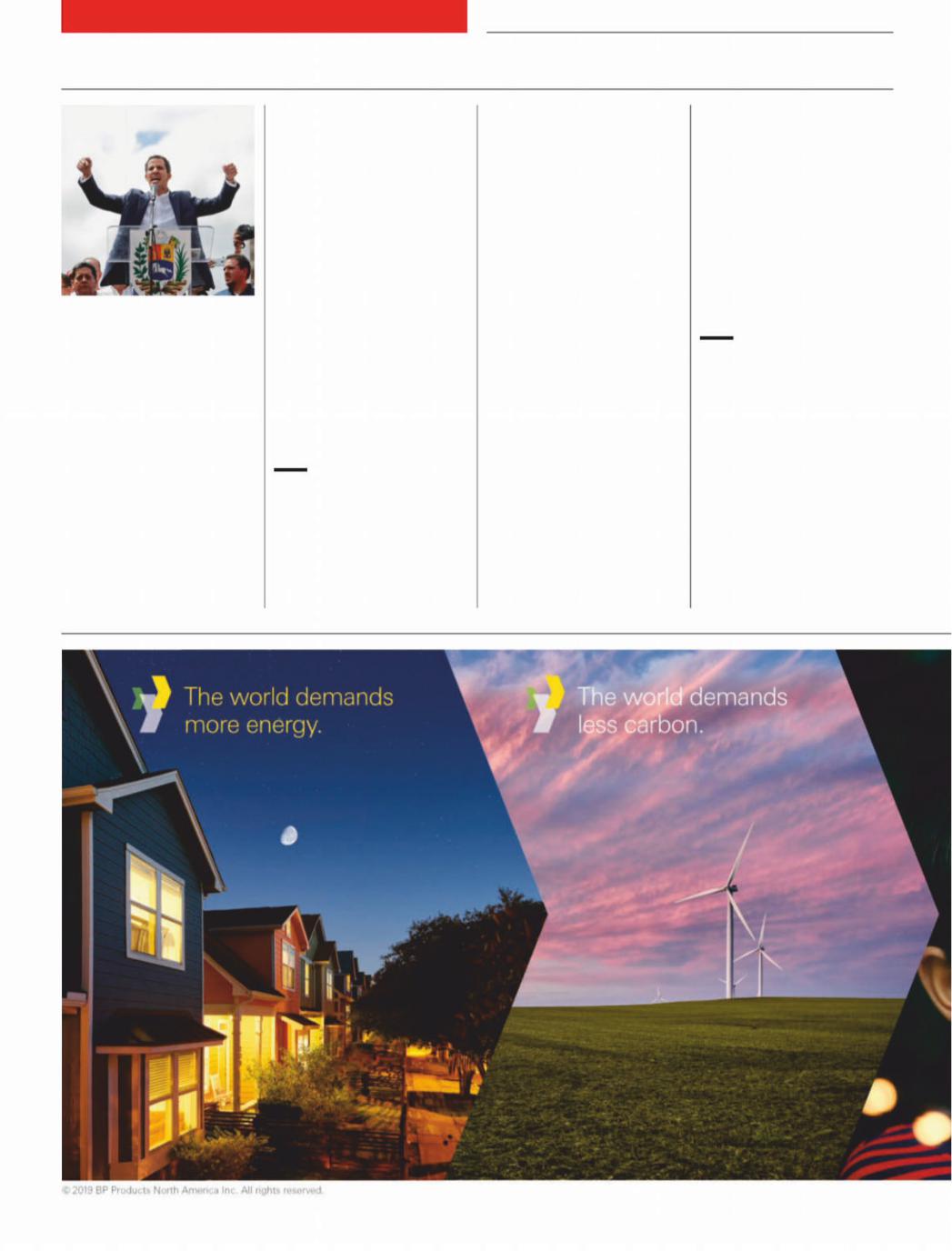
vk.com/id446425943
6 The world this week Politics
Juan Guaidó (pictured), the head of Venezuela’s national assembly, proclaimed himself the country’s acting president at a large protest against the socialist regime in Caracas, the capital. Venezuela’s opposition says that President Nicolás Maduro is a usurper: he won a rigged election last year and has been sworn in to a second term. The United States recognised Mr Guaidó as interim leader, as did Canada and most large Latin American countries. Venezuela broke o diplomatic relations with America and gave its diplomats 72 hours to leave the country.
At least 98 people were killed by an explosion as they collected fuel from a leaking petrol pipeline in the Mexican state of Hidalgo. The pipeline has been repeatedly tapped by thieves at the location of the blast. This month Mexico cracked down on fuel theft by shutting pipelines, which has led to shortages.
A car-bomb at a police academy in Colombia’s capital, Bogotá, killed 21people. The eln, a guerrilla group with 2,000 fighters, took responsibility, saying that the government had spurned its peace overtures. It was the first such bomb attack in nine years.
The Franco-German engine
Chancellor Angela Merkel and President Emmanuel Macron met at Aachen to sign a new treaty of co-operation between
Germany and France. Critics said the document was vague and papers over deep divi-
The Economist January 26th 2019
sions; boosters stressed the symbolic importance of a renewed commitment to the European Union from its two principal members.
Italy’s deputy prime minister, Matteo Salvini, accused France of “stealing wealth” from Africa, the latest twist in a deepening battle of words between the two neighbours.
The eu imposed sanctions on the head and deputy head of Russia’s military intelligence agency for last year’s nerveagent attack on a Russian dissident in Salisbury, a town in England. It also sanctioned the two agents suspected of carrying out the attack.
Theresa May, Britain’s prime minister, outlined her “Plan B” to Parliament following the defeat of her withdrawal agreement with the eu. The only concrete change was the waiving of a £65 ($84) application fee for eu citizens who want to
confirm their residency in Britain. mps repeatedly shouted “Nothing has changed!” during Mrs May’s statement. Remain-supporting mps made moves to prevent a no-deal Brexit.
A car-bomb exploded in
Northern Ireland outside a court in Londonderry. Police suspect it was planted by a republican splinter group.
Giving it another go
American o cials said Donald Trump would meet Kim Jong Un, the leader of North Korea, for a second summit at some point in February. Talks between the two countries about North Korea’s nuclear weapons and long-range missiles have been bogged down since the pair’s first meeting in June.
Candidates registered for |
|
Afghanistan’s presidential |
|
election, to be held in July. |
|
Both the incumbent, Ashraf |
1 |
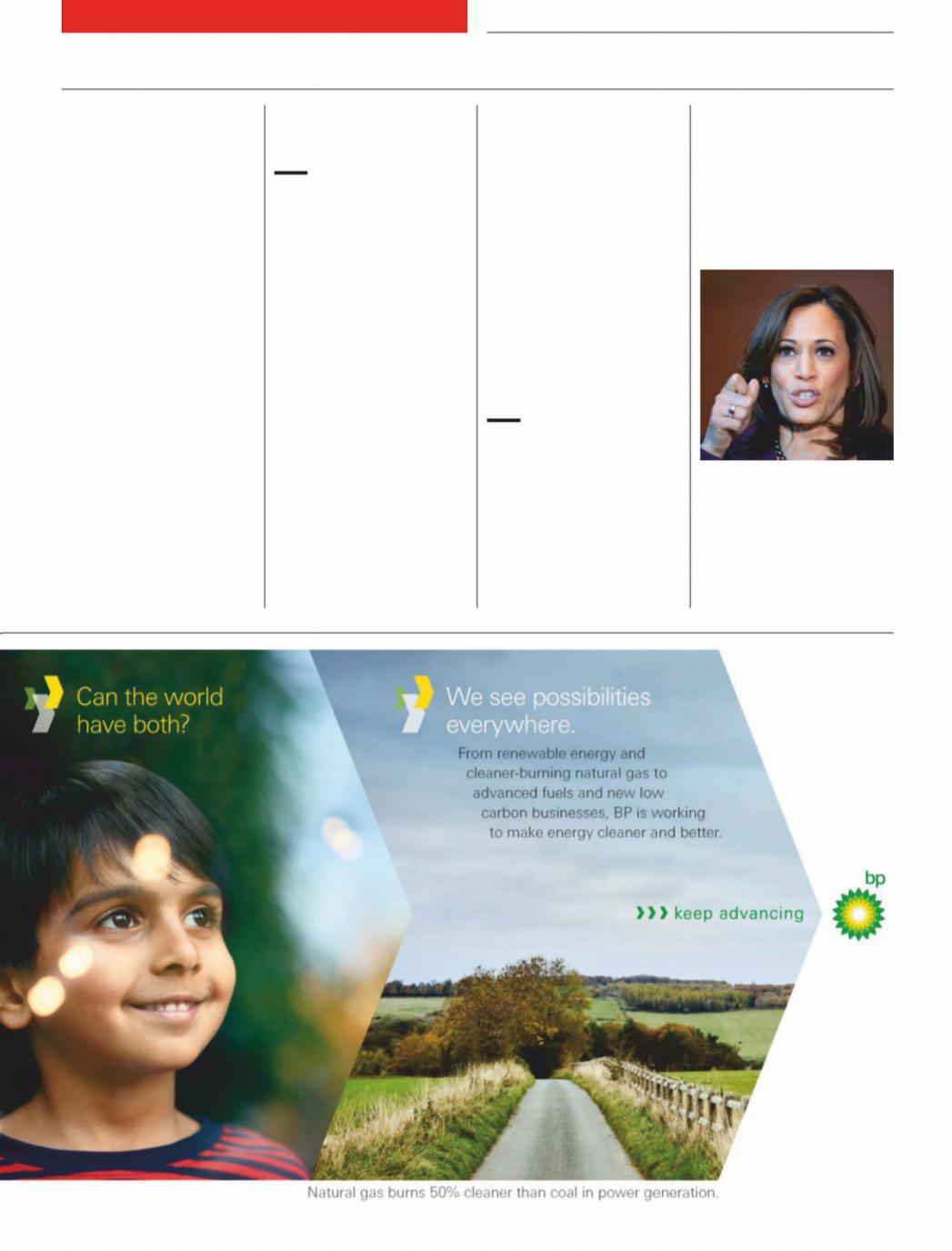
vk.com/id446425943
The Economist January 26th 2019
2Ghani, and the man he narrowly beat in a run-o last time, Abdullah Abdullah, are running again. The Taliban attacked a military-intelligence base, killing scores of people.
Joko Widodo, the president of Indonesia, announced that he was pardoning Abu Bakar Basyir, a cleric who was the spiritual leader of Jemaah Islamiah, an Islamist terrorist group that killed over 200 people by exploding bombs in a tourist resort in Bali in 2012. Uproar ensued: Mr Basyir has not renounced violence and is expected to go back to inciting it. In the run-up to an election, the president is keen to dispel the widespread charge that he is insu ciently pious.
Priyanka Gandhi was appointed to a post in Congress, India’s main opposition party. She is the sister of its current leader, Rahul Gandhi; their father, grandmother and greatgrandfather all served as
India’s prime minister. The appointment may energise the party ahead of an election.
The man who won the count
The Democratic Republic of Congo’s constitutional court declared Félix Tshisekedi the winner of the presidential election, despite compelling evidence that the result had been rigged. It threw out an appeal by Martin Fayulu, who is thought to have won with about 60% of the vote.
The security forces in Zimbabwe were accused of abducting and torturing members of the opposition amid protests against higher fuel prices and the government of Emmerson Mnangagwa. At least12 people were shot dead and many more injured when police and soldiers fired on demonstrators.
Police in Ethiopia arrested Bereket Simon, a former gov-
The world this week 7
ernment minister and ally of the late prime minister, Meles Zenawi. It is the most prominent arrest thus far in a crackdown on corruption led by Abiy Ahmed, the current prime minister.
Israel bombed what it said were Iranian military targets in Syria in retaliation for a missile launched towards the Golan Heights. By confirming the attack, Israel departed from its long-held policy of neither admitting nor denying its air strikes against the bloodspattered Syrian dictatorship.
No way to run a country
As the shutdown of the American government entered its fifth week, the Senate prepared legislation that would temporarily fund services. In a public spat with the Democrats, Donald Trump conceded that he could not give his state-of-the- union speech to Congress until the situation was resolved. The
president described the hundreds of thousands of federal workers who have gone without pay as “great patriots”.
America’s Supreme Court reinstated a ban on transgender troops from serving in the armed forces.
Kamala Harris announced that she will run for the Democrats’ presidential nomination. Ms Harris has been a senator for California for two years. She is the third prominent candidate to join what will eventually become a very crowded field.
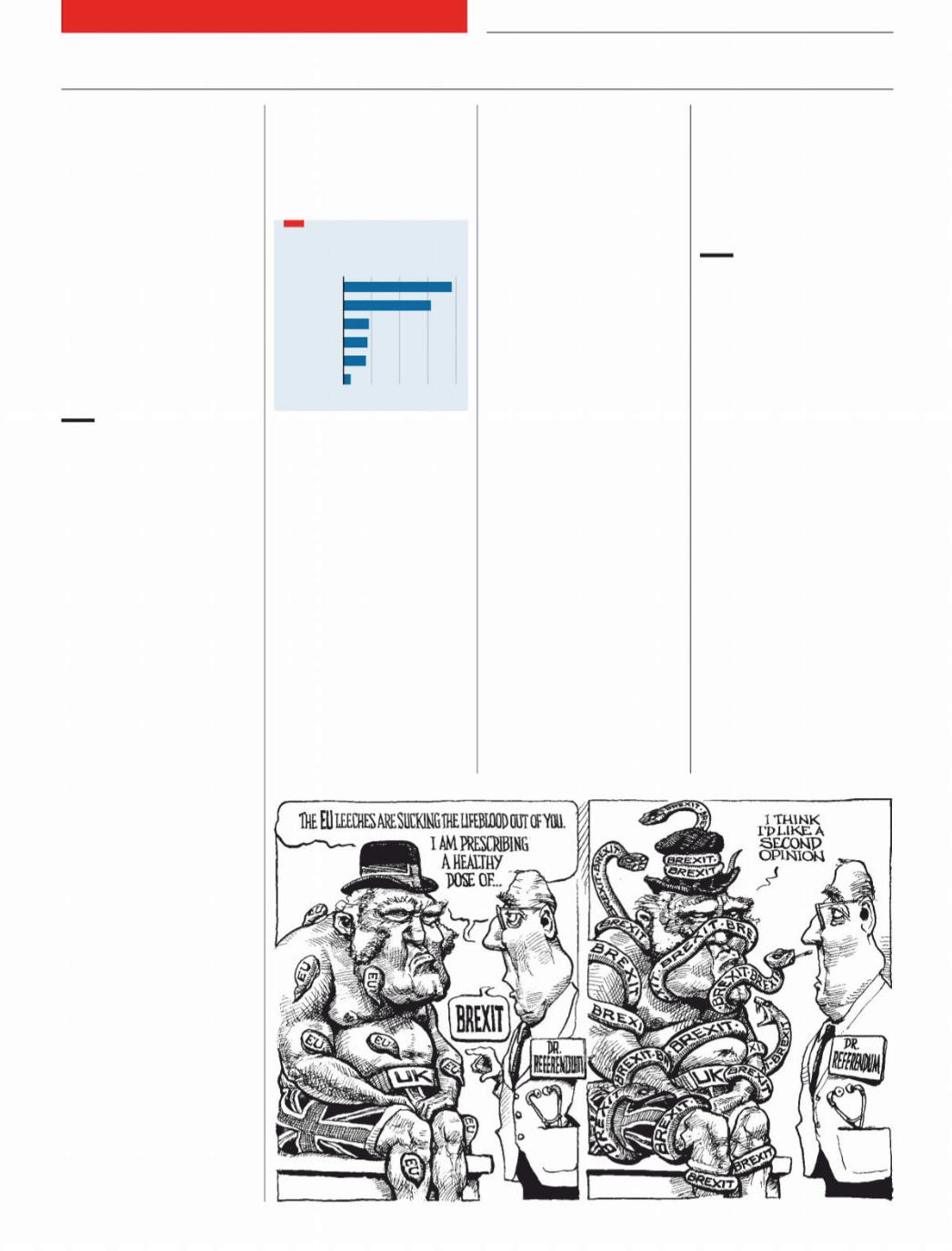
vk.com/id446425943
8 The world this week Business
The French finance minister said that Carlos Ghosn had resigned as chief executive and chairman of Renault, a day before the carmaker’s board was due to meet to discuss replacing him. The French government owns a stake in Renault and had pressed it to remove Mr Ghosn following alleged financial wrongdoing at Nissan, Renault’s global partner. Mr Ghosn was sacked as Nissan’s chairman when the scandal broke last November. He has again been denied bail in Tokyo and remains in custody. He denies wrongdoing.
Trying to find a new roadmap
Net profit at Ford fell by half last year, to $3.7bn, and it reported a fourth-quarter loss, as it continued to perform poorly in regions outside North America. The carmaker said it was facing many di - culties, including the absorption of tari -related costs. It promised weary investors that it would soon give details of its crucial restructuring.
Tesla’s share price took a hammering after Elon Musk said he would have to cut full-time jobs by 7%. The electric-car maker’s workforce grew by 30% last year, which its boss conceded was “more than we can support”. Production of the Model 3 has ramped up, but Mr Musk wants to o er the massmarket sedan to customers at $35,000; the cheapest versions start at around $44,000.
The French data-protection o ce fined Google €50m ($57m) for the cursory manner in which it gained users’ consent. It was the first penalty levied against a big tech firm for breaching the European Union’s General Data Protection Regulation, which asserts that firms must be explicit when seeking such consent. Complaints had been lodged by data-privacy groups, including Vienna-based None of Your Business.
The eu’s antitrust commissioner fined MasterCard €571m ($650m) for obstructing
merchants’ access to crossborder card-payment services. The credit-card network co-operated with the investigation and says it stopped the practice years ago.
GDP forecasts
2020, % increase on a year earlier
0 |
2 |
4 |
6 |
8 |
India
China
United States
Euro area
Britain
Japan
Source: IMF
The imf warned that “the global expansion is weakening and at a rate that is somewhat faster than expected”. The fund revised down its forecasts, particularly for advanced economies. The world’s economy is forecast to grow by 3.6% in 2020. Although that is stronger than in some previous years, the imf thinks “the risks to more significant downward corrections are rising”, in part because of tensions over trade and uncertainty about Brexit.
The imf also cautioned that the slowdown in China could be deeper than expected, especially if the trade spat with America is unresolved. Its economy grew by 6.6% last
year, the slowest annual pace since1990, when sanctions were imposed following the Tiananmen Square massacre.
House sales in America (excluding newly built homes) fell by10% in December compared with the same month in 2017, according to the National Association of Realtors. The median price of a home grew by just 2.9%, to $253,600.
It emerged that two activist hedge-funds have built stakes in eBay and are pushing the e-commerce company to spin o StubHub, its website for selling tickets, and its classi- fied-ads division. EBay’s share price fell by a third last year from a peak in early February, as it struggled to compete with Amazon.
ubs said clients pulled a net $7.9bn from its wealth-man- agement business in the last three months of 2018 amid a market sell-o . The Swiss bank’s pre-tax profit rose by 2% year on year, to $862m.
The trial began in London of John Varley, the chief executive of Barclays from 2004 to 2011, and three other former executives for alleged fraud in a deal with Qatari investors to prop up the bank in 2008. The
The Economist January 26th 2019
four men deny the charges. The case, brought by the Serious Fraud O ce, is expected to take up to six months in court. It is the first criminal trial of anyone who headed a big global bank during the financial crisis.
He’s for leaving, all right
Dyson, a British manufacturer founded by Sir James Dyson, a prominent Brexiteer, announced that it is to move its headquarters to Singapore. The o cial reason was to “futureproof” the company. But the timing, and the fact that in October Singapore signed a free-trade deal with the eu, drew derision from Remain supporters and dismay from hard-Brexiteers.
Netflix received its first Oscar nomination for best picture. “Roma”, the tale of a maid in Mexico City, gathered ten nominations in all (“Icarus”, another Netflix film, won best documentary feature last year). The streaming service gained an extra 8.8m paying subscribers in the fourth quarter of 2018, 7.3m of them outside the United States. They are attracted by its original content. “Bird Box”, a horror thriller, was watched by 80m households in its first four weeks on Netflix.
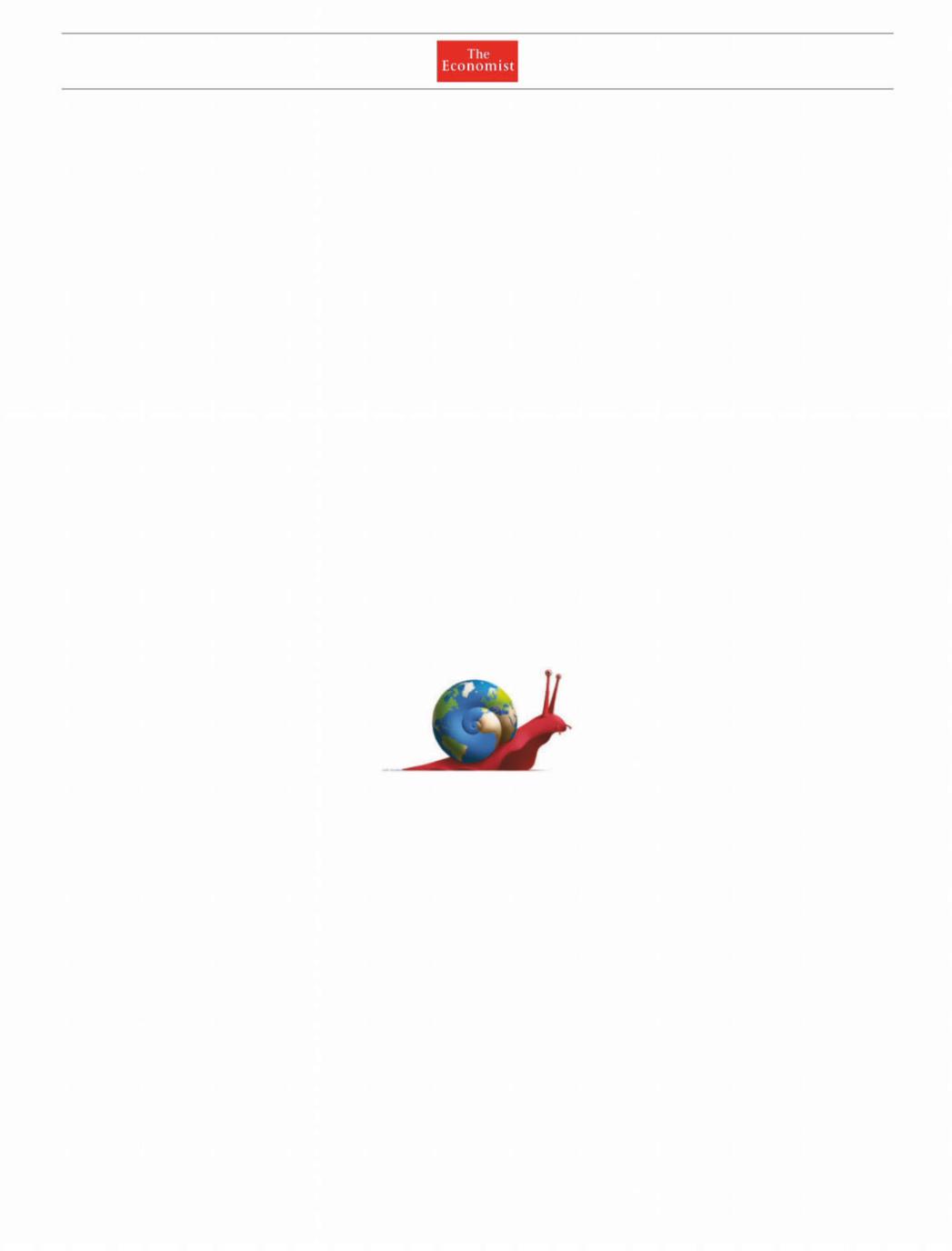
vk.com/id446425943
Leaders
Leaders 9
Slowbalisation
A new pattern of world commerce is becoming clearer—as are its costs
When america took a protectionist turn two years ago, it provoked dark warnings about the miseries of the 1930s.
Today those ominous predictions look misplaced. Yes, China is slowing. And, yes, Western firms exposed to China, such as Apple, have been clobbered. But global growth in 2018 was decent, unemployment fell and profits rose. In November President Donald Trump signed a trade pact with Mexico and Canada. If talks over the next month lead to a deal with Xi Jinping, markets will conclude that the trade war is political theatre designed to squeeze a few concessions from China, not blow up commerce.
Such complacency is mistaken. Today’s trade tensions are compounding a shift that has been under way since the financial crisis of 2008-09. Cross-border investment, trade, bank loans and supply chains have all been shrinking or stagnating relative to world gdp (see Briefing). Globalisation has given way to a new era of sluggishness. Adapting a term coined by a Dutch writer, we call it “slowbalisation”.
The golden age of globalisation, in1990-2010, was something to behold. Commerce soared as the cost of shifting goods in ships and planes fell, phone calls got cheaper, tari s were cut and finance liberalised. Business went gangbusters, as firms set up around the world, investors roamed and consumers shopped in supermarkets with enough choice to impress Phileas Fogg.
Globalisation has slowed from light speed to a snail’s pace in the past decade for several reasons. The cost of moving goods has stopped falling. Multinational firms have found that global sprawl burns money and that local rivals often eat them alive. Activity is shifting towards services, which are harder to sell across borders: scissors can be exported in 20ft-containers, but hair stylists cannot. And Chinese manufactur-
ing has become more self-reliant, so needs to import fewer parts. This is the fragile backdrop to Mr Trump’s trade war. Tari s tend to get the most attention. If America ratchets up duties on China in March, as threatened, the average tari rate on American imports will rise to 3.4%, its highest for 40 years. (Most firms plan to pass the cost on to customers.) Less glaring, but just as pernicious, is that rules of commerce are being rewritten around the world. The principle that investors and firms should be
treated equally regardless of their nationality is being ditched. Evidence for this is everywhere. Geopolitical rivalry is grip-
ping the tech industry, which accounts for about 20% of world stockmarkets. Rules on privacy, data and espionage are splintering. Tax systems are being bent to patriotic ends—in America to prod firms to repatriate capital, in Europe to target Silicon Valley. America and the European Union have new regimes for vetting foreign investment, while China, despite its bluster, has no intention of giving foreign firms a level playing-field. America has weaponised the power it gets from running the world’s dollarpayments system, to punish foreigners such as Huawei (see Business section). Even humdrum areas such as accounting and antitrust are fragmenting.
Trade is su ering as firms use up the inventories they had built up in anticipation of higher tari s. Expect more of this in
2019. But what really matters is firms’ long-term investment plans, as they begin to lower their exposure to countries and industries that carry high geopolitical risk or face unstable rules. There are signs that an adjustment is beginning. Chinese investment into Europe and America fell by 73% in 2018. The global value of cross-border investment by multinational companies sank by about 20% in 2018.
The new world will work di erently. Slowbalisation will lead to deeper links within regional blocs. Supply chains in North America, Europe and Asia are sourcing more from closer to home. In Asia and Europe most trade is already intra-regional, and the share has risen since 2011. Asian firms made more foreign sales within Asia than in America in 2017. As global rules decay, a fluid patchwork of regional deals and spheres of influence is asserting control over trade and investment. The eu is stamping its authority on banking, tech and foreign investment, for example. China hopes to agree on a regional trade deal this year, even as its tech firms expand across Asia. Companies have $30trn of cross-border investment in the ground, some of which may need to be shifted, sold or shut.
Fortunately, this need not be a disaster for living standards. Continental-sized markets are large enough to prosper. Some 1.2bn people have lifted themselves out of extreme poverty since 1990, and there is no reason to think that the proportion of paupers will rise again. Western consumers will continue to reap large net benefits from trade. In some cases, deeper integration will take place at a regional level than could
have happened at a global one.
Yet slowbalisation has two big disadvantages. First, it creates new di culties. Between 1990 and 2010 most emerging countries were
able to close some of the gap with developed ones. Now more will struggle to trade their way to riches. And there is a tension between a more regional trading pattern and a global financial system in which Wall Street and the Federal Reserve set the pulse for markets everywhere. Most countries’ interest rates will still be a ected by America’s even as their trade patterns become less linked to it, leading to financial turbulence. The Fed is less likely to rescue foreigners by acting as a global lender of last resort, as it did a decade ago.
Second, slowbalisation will not fix the problems that globalisation created. Automation means that there will be no renaissance of blue-collar jobs in the West. Firms will hire unskilled workers in the cheapest places in each region. Climate change, migration and tax-dodging will be even harder to solve without global co-operation. And far from moderating and containing China, slowbalisation will help it win regional hegemony faster.
Globalisation made the world a better place for almost everyone. But too little was done to mitigate its costs. The integrated world’s neglected problems have now grown in the eyes of the public to the point where the benefits of the global order are easily forgotten. Yet the solution on o er is not really a fix at all. Slowbalisation will be meaner and less stable than its predecessor. In the end it will only feed the discontent. 7
